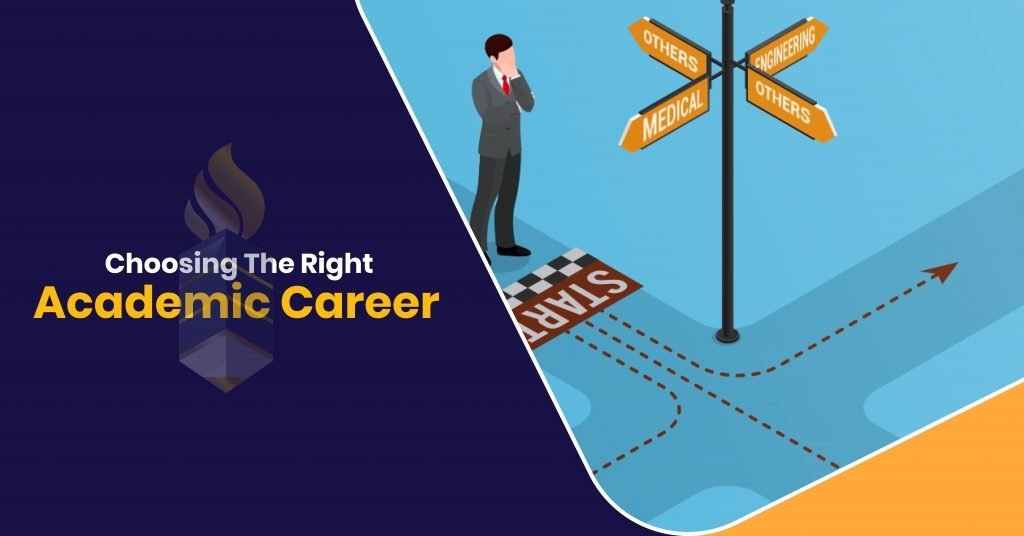Applying for college and choosing a degree to pursue is a big decision, not to mention a difficult one, especially when it hasn’t crossed your mind beforehand or if you haven’t thought about it yet. There are many factors on which courses to take. Things like what line of work you think would fit you, opportunities present after graduating, what’s in demand in the workforce.
With the broad range of subjects and courses present, it can be nerve-wracking and can send someone straight in the state of overwhelmed panic that may confuse a student on finding the most ideal course available. Choosing the right academic career can prove to be difficult for students as it is one of the most important decisions to be taken at the right time. Some steps that can be followed in order to make the right academic choice are as follows:
What is your interest zone ?
Answer to this question will clearly change one’s perspective on to which course will be appropriate for them academically.
Researching About the Interest
The internet, newspapers, television and people around you are the best sources of information. Check online about the courses you are interested in and find out about the career prospects and the other information. Speak to people who are in your interested profession and find out what it is to choose your future career.
Check Out the Course Content
To avoid making mistakes, make sure you review the course outline of the course(s) you want to apply for. Have a look at the subjects you must undertake and the types of learning, assignments and examination tasks involved. This will enable you to form a rough idea of what lies ahead for you and will also help you to enhance the knowledge that you already posses.
Find out the Entry Requirements
It is more difficult to get accepted in to competitive courses, especially those which are in high demand. This is a good measure of whether you are actually capable of doing well in the course or not. Unfortunately, some courses are too hard to get in to, or just too hard to actually succeed in completing, so be honest with your course selection. You should research other universities or similar courses if you are not confident in being accepted into your first preference course.
Be certain about the Cost of Study
Affordability is another aspect you need to consider while deciding on your course, as well as the additional costs that occur, such as text books, field trips etc. However, do not let cost hamper your career choice, as there are a number of financial assistance options available to complete the course.
Look for post-study career opportunities
Look at the career prospects of the course before selecting one. Consider various factors such as income, job security, stress, responsibility and other benefits while researching a profession. It is also useful to find out if a future employer will invest in your education.
From an early age, you demonstrated your unique skills and abilities and could help you to succeed in your chosen profession.
If you do not know your skills and abilities, make a list of everything you can do well. Your family members, friends, teachers, administrators and mentors can help you compile a list that you will use to reduce job opportunities.
- Are you a leader or a followers?
- Do you prefer to work alone or in a group?
- Do you prefer to cooperate or compete with others?
- Do you enjoy helping others or prefer to empower them to do things themselves?
- Are you a thinker who focuses on ideas or are you a doer who takes action?
- Are you a creative and artistic person or do you thrive with structure and routine?
Everyone has principles or things that are important to them, such as financial security, social justice, or the balance of work life. These principles can help you decide what kind of work to pursue. Here, for example, consider a well-paying job if you value financial security, and consider a 9-to-5 job if you want to earn a working life balance.
Must identify your skills
Right now, you have skills that can help you succeed in the future. Think of your hard skills and soft skills.
Soft skills: the people and life skills you have, which includes teamwork and time management.
Always ask yourself why you want to pursue a particular career as you explore which option is best for you. Do not allow the opinions or expectations of others to influence your decision. In the end, your choice of career is yours alone.


